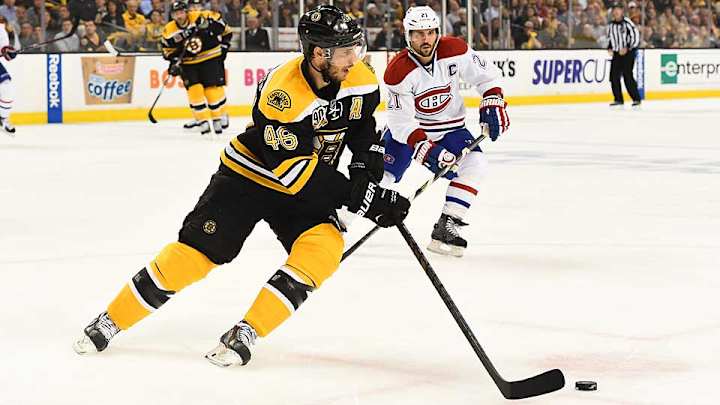David Krejci's new deal with the Bruins is a steal...for Krejci

There are a total of five centers in the NHL I'd want on my team ahead of Patrice Bergeron.
David Krejci is not one of them.
NHL's best off-ice moves of the summer
This thought came to mind last night when I first heard that the Bruins had given Krejci a six-year, $43.5 million extension that set up the 28-year-old to become the highest-paid player on the team starting with the 2015–16 campaign. And the thought circled around again on Thursday after hearing one too many people I respect prattling on about what a great deal this is.
A great deal? Sure ... for Krejci. He now stands to become the only No. 2 center in the league who'll take home more than his team's No. 1. And make no mistake: He is Boston's second-best pivot.
Sure, he averaged more ice time than the Selke Trophy-winning Bergeron last year, (19:07 to 17:59). Krejci also had had the edge on the score sheet (69 points to 62). But Bergeron is, and has long been, the more effective player at even strength.
Last season the gulf between the two was staggering. Comparing their prorated numbers per 60-minute increments, Bergeron outproduced Krejci in goals and points. Bergeron's Corsi relative to quality of competition was .934, compared to Krejci's .515, extending a trend that goes back to the 2008–09 season ... and this was while Bergeron was starting only 46% of his shifts in the offensive zone, compared to 53.9% for Krejci.
And when it mattered most, it was Bergeron's shoulder that coach Claude Julien tapped most often. Bergeron took more draws on both the power play (178 to 128) and the penalty kill (236 to 56) than did Krejci. In total, Bergeron stood in for 1,732 face-offs. That was 500 more than Krejci.
Blue Jackets' Ryan Johansen needs a reality check; more notes
It is pretty clear who's No. 1 in Boston. So why pay Krejci like he's top dog? Inflation has something to do with it. During the cap-crunched summer of 2013, Bergeron signed an eight-year, $52 million deal that will kick in this season. That contract looked like a bargain then. It's a steal worthy of Ronnie Biggs now.
But the bigger factor was that GM Peter Chiarelli had painted himself into a corner last summer with the Tyler Seguin trade.
I'll continue to take the bullet for Chiarelli on that swap—it made sense for a lot of different reasons—but it left him with no options and Krejci with all the leverage. And so here we are.
None of this is to suggest that Krejci is a bad player. He's a solid two-way pivot whose offensive numbers would likely look better if he played in any system other than Claude Julien's. And even though he was a total flop in last spring's playoffs (four assists in 12 games), he led the postseason in scoring in two of the three previous years. His ability to excel under pressure merits a raise.
But paying him more than the team's top center? Tough to call that a great deal.
